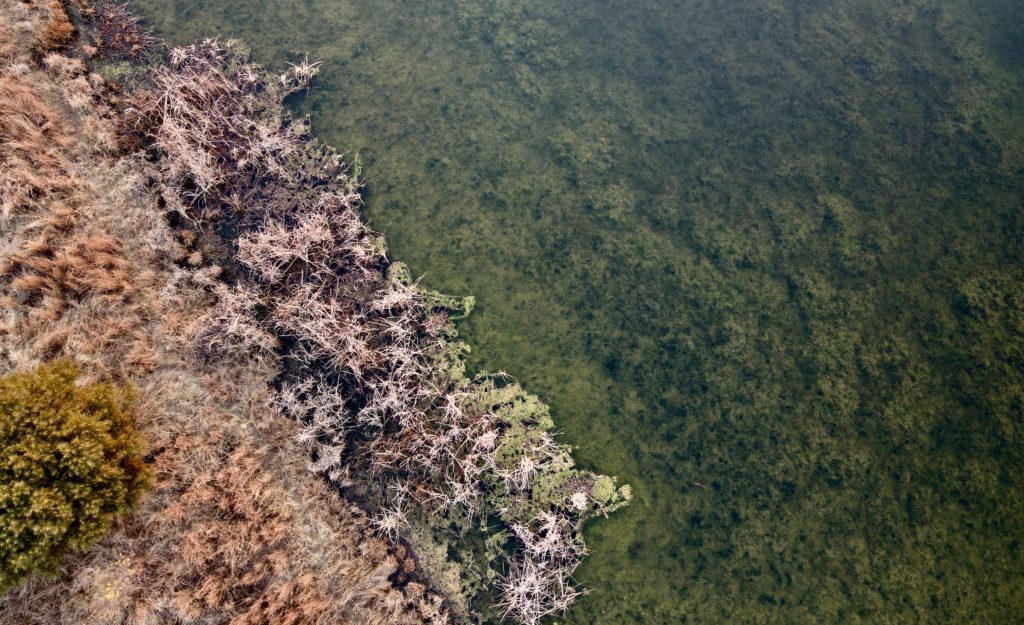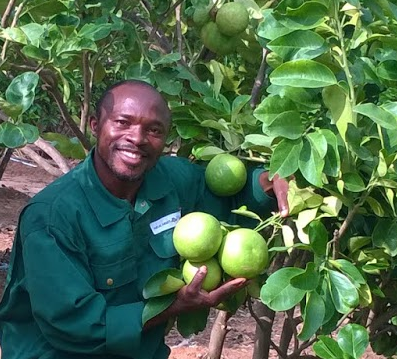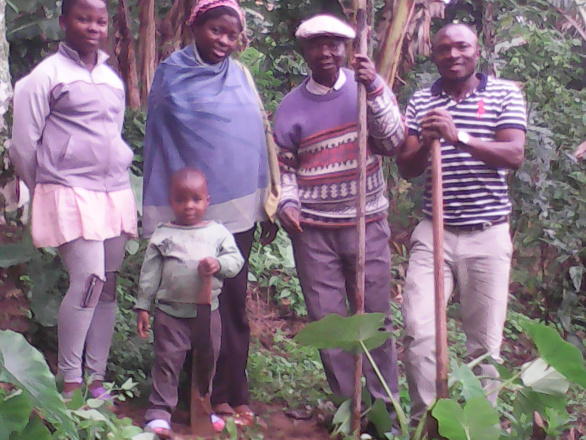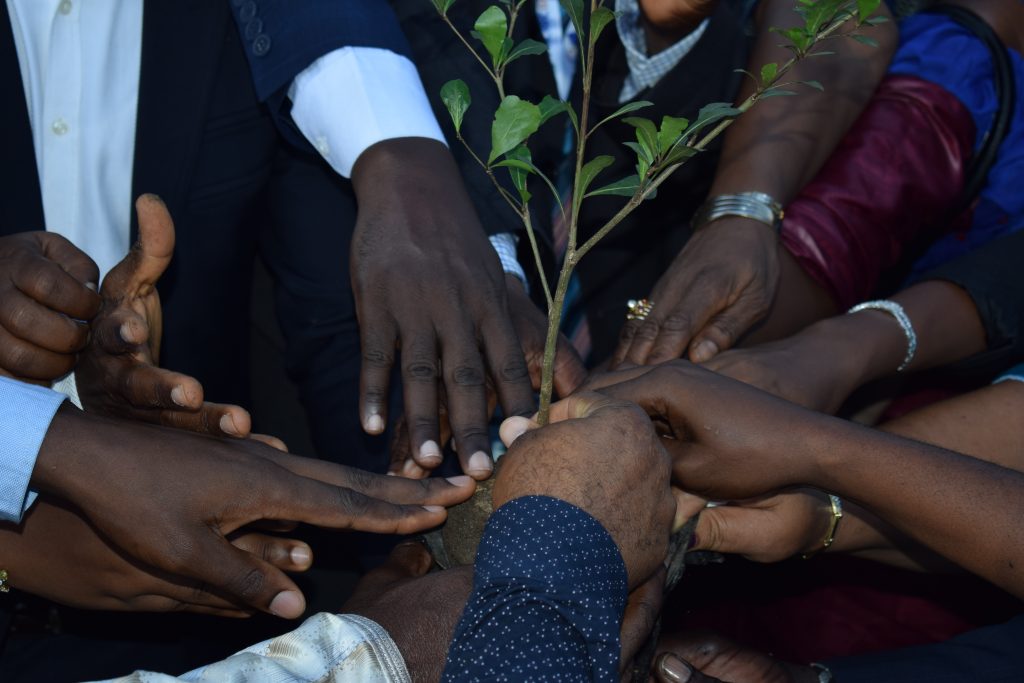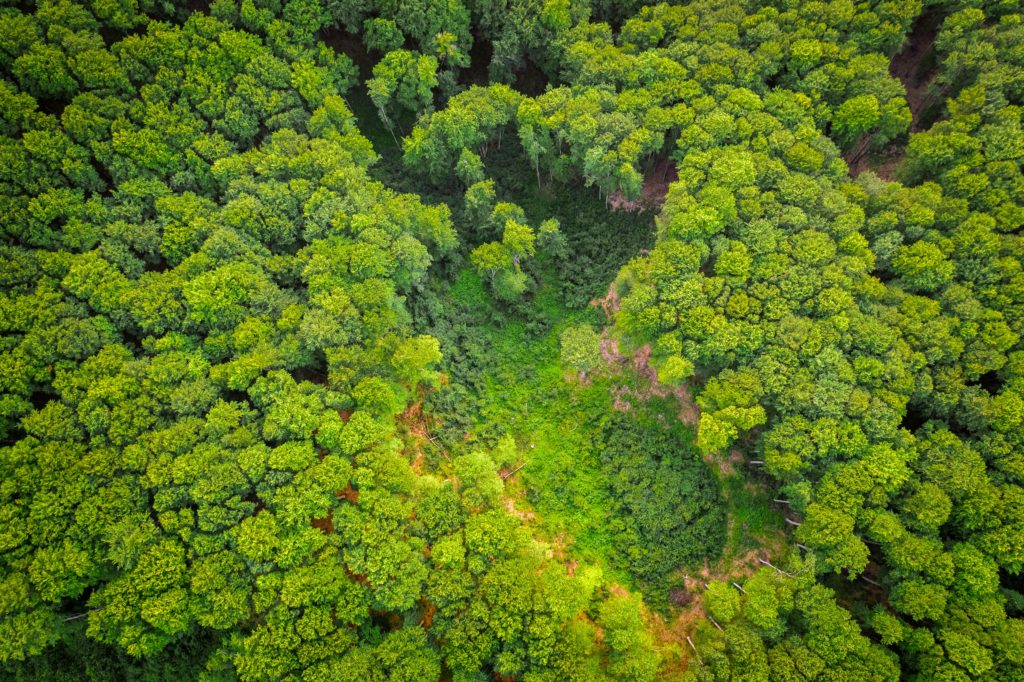Planting, growing and nurturing One Billion Trees to revive degraded ecosystems and combat deforestation
Tabi Joda
“A forest should deliver both environmental services and economic opportunities. Agroforesty restores the ecosystem and provides livelihoods.”
One Billion Trees for Africa is a frontline response to climate degradation with a milestone of 2 million trees grown, 80ha restored, 77 land-based jobs created in 33 communities, in 11 countries across Africa in 2010 -2020.
Our Mission
Our mission is to plant, grow and nurture one billion trees to revive our degraded ecosystems and biodiversity and combat deforestation, while improving livelihoods and capacity of African communities to mitigate, adapt and build resilience to climate change.
This delivers on the Sendai Framework for Disaster Risk Reduction, Sustainable Development Goals, the Paris Agreement, and NDCs. Along with our partners, we are working towards a more sustainable future.
The Problem
Deforestation is driving land degradation, biodiversity loss, ecosystem degradation, disasters, migration and violence.
Deforestation has put our world at crossroads of ecological crisis! In the last 10 years, over 6 million people lost their lives and over 1.8 billion people were affected by various forms of disasters causing over 3.5 trillion US Dollars worth of economic losses. Ecosystem degradation and biodiversity loss resulting from rapid deforestation and forest fragmentation has increased the frequency and scale of hazards, conflicts and disasters such as floods, landslides, windstorms, sunburns, species decline, desertification and climate change impacts. In Africa, communities and critical infrastructure are increasingly on the front-line of the impacts.
The Solution
One Billion Trees for Africa is Africa’s nature-based solution that improves green growth opportunities and ecosystem services benefits such as fresh air, and clean water for 80% of African families who are mostly smallholder farmers, fishers, hunters, artisans, and indigenous peoples who depend on land-based natural resources mostly forest products and services for income, employment, food and well-being. Once mature, our trees certifiably impact the livelihoods of vulnerable rural populations, and reduce hazards such as land degradation, desertification, drought, dust storms, erosion and extreme weather events, while also combating food insecurity, poverty, resources pressures, uncontrolled migration, human displacements, and violent conflicts.
How We Work
Too often, big NGO’s move into Africa with plans for widespread tree planting. The put some saplings in the ground and move on, increasing their count for marketing purposes but investing little or nothing in the longterm care of the forests they supposedly create. When we calculate the cost of planting a tree, we include the salary of the caretaker who will need to care for it for years. We include the community investment and longterm maintenance needed to truly create a new future for Africa.
Agroforestry for People and The Planet
Agroforestry is a central component of the 2021-2030 UN Decade of Ecosystem Restoration: a global effort to accelerate efforts to reverse centuries of damage to forests, wetlands and other ecosystems and chart a sustainable course for the planet.
It is based on a community-centric approach, in which all planting schemes take the human landscape, needs and economy into account. It also take the longview.
Empowering the Future
Supporting youth in becoming the ecosystem champions of the future is a central tenet of all One Billion Trees For Africa programs and initiatives.
Education is a key component of everything we do. Youth must learn the skills necessary and cultivate passion for the land around them if any longterm solution to desertification can be achieved.

